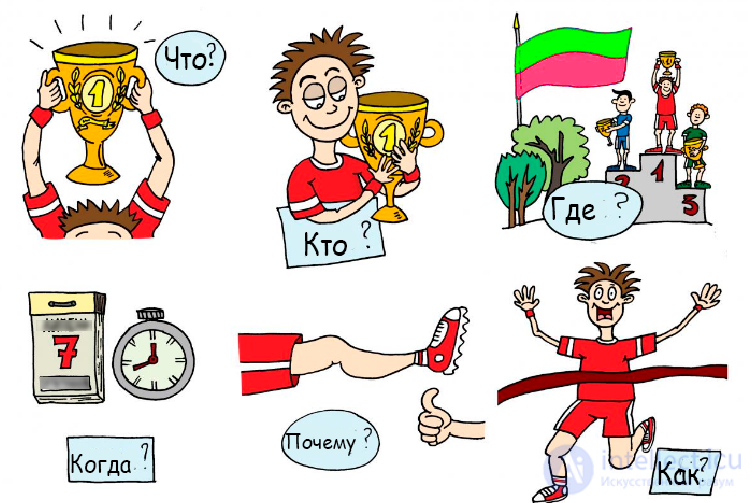Lecture
A report is a message, a story about an event or events that happened before the eyes of a journalist.
Like other genres, this characteristic requires additional explanation - in most cases, news journalism consists of descriptions of what happened in front of a journalist or someone else. So - what was transmitted from the words of other people to be considered news, but what was seen by myself as a report? Of course not. But you can tell about what you see in different ways, using the whole arsenal of tools available to the journalist. And one of these tools is reporting. An important difference between the news report and the news is that the form for writing the report is free. You can describe events chronologically. For example, the “Day with ...” report type is distributed, which describes the day spent with the mayor of the city, a deputy, a tram driver or a local police officer. And you can structure reports as a description of the problems seen by the reporter, or the places where he visited.

We add that the report - the same genre that brings journalism to literature. He is the most literary. Recall the famous stories by Vladimir Gilyarovsky. His reports are published in a separate book, which is read with pleasure to this day. Gilyarovsky wrote about the Neglinka River, about Moscow bathhouses and taverns, about the morals of the inhabitants of nochlezki and about the tragic events on the Khodynka field. His knowledge of Moscow is amazing.
Now, in the era of the Internet and satellite phones, reports are no less interesting than they were a hundred years ago. And of course, good reports today are valued no less than during the First World War, when Hemingway wrote his reports from Europe. After all, reports not only tell about what happened, but also show how it happened.
What should be, what requirements must be met in order for the report to be good? Let's try to formulate them as wishes, since, as was said, the form of reporting is free.
Subject, purpose , subject of the genre
The purpose of reporting compared to the report is complicated. The reporter seeks as quickly as possible to show the reader a picture of the event at all stages of its development - from the beginning to the end, to promptly recreate the “history of the event” as its eyewitness or participant. This is a genre-intelligence officer, journalists turn to him, trying to report on what is happening in our country and beyond its borders. The subject of the report is always the course of the event, combining the visual and oral form of the expression of its content. Therefore, the author of the report should organize the collection of material in such a way as to be able to personally observe the event. Other ways of adding information are not excluded at all. It is useful to read something close to the topic. You can ask questions, reconstruct the course of events according to eyewitness accounts. But as a result, a “presence effect” should be created for the reader (the reader himself seems to see what is happening). According to S.M. Gurevich, “the role of a reporter is great: he leads a report, sometimes becoming not only a witness to an event, but sometimes even its initiator and organizer” S.M. Gurevich Newspaper: yesterday, today, tomorrow - Moscow: Aspect Press, 2004, p. 115.
Types of reporting
In modern reporting, both informational and analytical and publicistic principles can be successfully combined. It is for this reason that certain difficulties arise not only with the evaluation of the functional features of the reportage, but also with its intra-genre classification.
The task of classifying the construction of the report seems to be, firstly, to more clearly define the subject-specific zadnozhenie different types of reporting; secondly, to characterize the tasks facing the reporter; thirdly, to identify the main author's methods of displaying reality. At the same time, as B. Ya. Misonzhnikov writes, not only and not even so much, “ascertaining and fixing any givenness, but developing special methodological tools for a fuller and deeper understanding of the phenomena of a subject-practical nature.” Mr. M. Ya. , Yurkov A.A. Fundamentals of the creative activity of a journalist .- SPb., 2002, p. 40.
Reports on the subject-thematic basis are divided into event-based, problem ( analytical) and educational-thematic.
Comments
To leave a comment
Journalism
Terms: Journalism